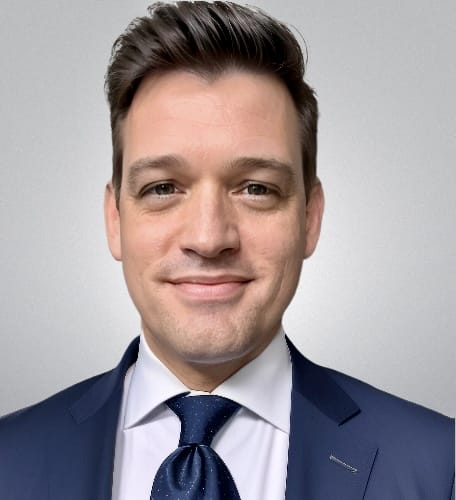Ask an expert:
Morgan Williams is a consultant in Acute Medicine at North Bristol NHS Trust, with specialist interests in toxicology and point of care ultrasound.
What got you interested in Toxicology?
Before taking up my Acute Medicine training programme, I spent a year working at a hospital with an attached poisons unit. A disproportionate amount of my time as medical registrar on-call there was spent managing the poisons unit admissions and inpatients, and I found it fascinating. As well as plenty of exposure to the most common poisoning cases, being in a tertiary centre I also saw many more severe, esoteric, or complex cases that aren’t often seen in general hospitals. This inspired me to learn more and ultimately choose Toxicology as a specialist skill once I started AIM training.

How did you train in Toxicology?
During my registrar training (2012-2018), the requirement for the Toxicology specialist skill was entirely through a part-time postgraduate diploma (PgDip) in Medical Toxicology at Cardiff University. Although I had the benefit of poisons centre experience, back then there was no specific clinical requirement for this. Matters have now changed since the changes to the Specialist Skills curriculum.
That said, >10% of hospital admissions are medication-related, and Toxicology is so much broader than overdoses alone – adverse drug reactions, drug interactions, medicines safety & governance and pharmacogenomics all come under the Toxicology umbrella and form part of everyday clinical practice in AIM. I genuinely learned just as much from my clinical exposure during my training as from my PgDip.
After CCT I returned to university part-time for a top-up MSc year, consisting of a research project & thesis, which I was lucky enough to be able to publish. Despite being on quite a niche topic, it does come in handy on occasion!
Were there any challenges?
The chief challenges for me came from the financial costs of the PgDip, which had to be self-funded, and juggling a part-time postgraduate course with full-time clinical work.
With the new changes to the Specialist Skill curriculum, this shouldn’t be an issue anymore and is far more equitable. I think the challenges now would be about getting exposure in a way that can be recorded in your portfolio – though see below for some ideas about this.
How does/will this fit into your consultant working?
Patients presenting with drug interactions, side-effects, and poisoning are common on the medical take, and so managing these cases is part of my daily clinical practice. However, as mentioned above, Toxicology is much broader than this and there are many ways to formally integrate it into your job plan.
In my case, I hold specific Trust-level roles in prescribing, medicines governance and medicines safety. We monitor & review medications incidents and deal with medicines safety alerts, and I attend the Trust Drug & Therapeutics Committee and regional formulary meetings.
Although this work isn’t patient-facing, it’s still extremely worthwhile due to its role in preventing medication-related harm to patients. It’s also a nice occasional break from the acute medicine coal face!
Do you have any tips for trainees who may be interested in Toxicology?
There are only 5 poisons centres in the country, and so not everyone will be able to spend time working there (although if you would like to do so, please contact them). You could also spend time with clinical pharmacology teams if they exist within your region.
Although this would be beneficial, it isn’t a necessary component of training at all as you can get plenty of useful exposure during your rotations – it’s a matter of making the most of the opportunities.
Bear in mind that clinical toxicologists can be emergency physicians, intensivists, or clinical pharmacologists as well as acute medics and so consider expanding your search to these departments if you can’t find opportunities in your AMU.
Finally, “toxicology clinics” as stated in the curriculum would be difficult (if not impossible!) to find, since it isn’t an outpatient specialty. Training in toxicology will need you to find ways of recording “clinic equivalents” in your portfolio. I would strongly suggest that you talk to your supervisors early about your interest & about what opportunities are available locally, as they will vary with rotations.
I’d also advise you to contact the Trusts’ Medicines Governance Group and Drug & Therapeutics Committee – every Trust will have these. They would welcome enthusiastic participants who can offer additional perspectives into medicines safety and governance; attendance at these sessions could certainly count as “clinic equivalents”. There may also be opportunities to undertake safety and quality improvement work via these teams.
